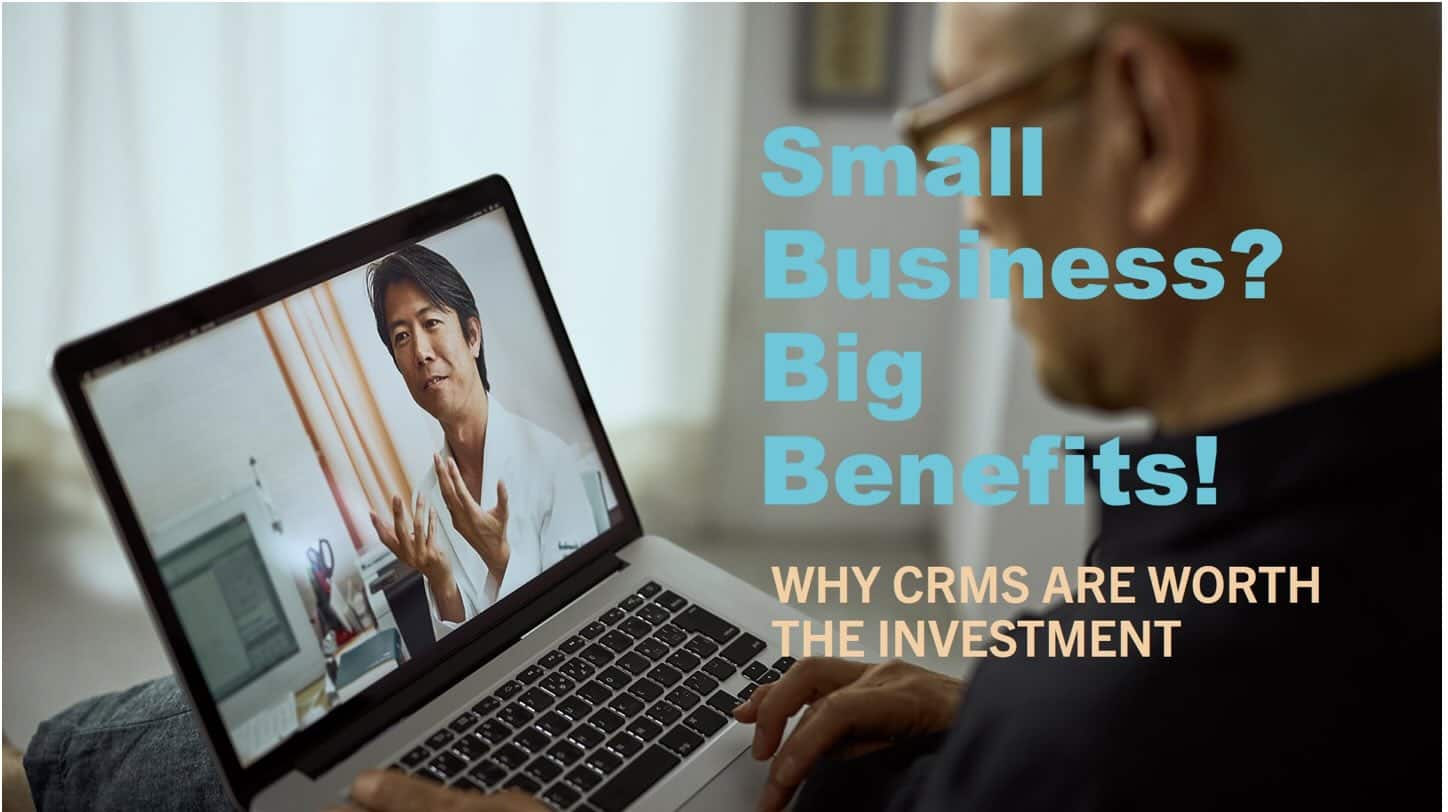For many small business owners, investing in a CRM (Customer Relationship Management) system might seem like overkill. After all, why would you need software to manage customers when you can just use a spreadsheet or jot things down on paper? The reality, however, is that a CRM can be the game-changer that small businesses need to grow, streamline operations, and improve customer relationships.
Here’s why CRMs are worth it, even for the smallest businesses:
1. You Can’t Grow Without Structure
Imagine running a restaurant where orders are taken on scraps of paper, schedules are remembered in someone’s head, and the budget is calculated on the back of a napkin. It might work in the early days, but as your business grows, this approach leads to chaos.
The same applies to managing customer relationships. As your customer base expands, relying on memory or disorganised notes to track interactions, follow-ups, and sales opportunities becomes unsustainable. A CRM creates the structure you need to stay on top of customer interactions, even as your business grows.
2. Follow-Ups Are Everything
According to research, 80% of sales require at least five follow-ups, but 44% of salespeople give up after just one. For small businesses, where every lead and opportunity counts, missing a follow-up can mean losing out on revenue.
A CRM ensures no lead slips through the cracks by automating reminders, tracking communications, and helping you prioritise the most important tasks. Whether it’s a potential client who expressed interest last week or a loyal customer celebrating their anniversary of working with you, a CRM helps you stay on top of the little things that matter.
3. CRMs Save You Time
Small business owners often wear multiple hats—salesperson, marketer, bookkeeper, and sometimes cleaner. Every hour you spend hunting through emails or trying to remember where you left off with a customer is an hour you’re not spending growing your business.
CRMs centralise your customer information, making it accessible in one place. You’ll spend less time searching and more time taking action.
4. They Make You Look Professional
Let’s say you’re working with a client who’s been using your services for years, but you accidentally forget their preferences or past concerns. It’s an easy mistake, but it can leave a bad impression, and it becomes harder to get right as your team grows.
With a CRM, all relevant information is at your fingertips. You can deliver personalised service that makes customers feel valued and keeps them coming back. This level of professionalism isn’t just good for relationships—it builds trust and boosts your brand.
5. They’re More Affordable Than You Think
One of the biggest misconceptions about CRMs is that they’re expensive. While there are high-end solutions designed for enterprise businesses, there are also plenty of affordable or even free options tailored for small businesses. Tools like Zoho Bigin, MailerLite or Insightly (and many more, depending on what you are looking for!), offer robust CRM features at a fraction of the cost of the big players, as long as you know what you are looking for. They will always have at least a free trial, if not a free entry-level version.
The key is to choose the right CRM for your needs. That’s where an independent guide like the *CRM Game Plan* can help you avoid paying for unnecessary features or getting locked into expensive contracts.
6. They Prepare You for the Future
You might be small now, but what happens when you’re managing 100, 500, or 1,000 customers? Setting up a CRM early makes scaling much easier. It’s not just about managing your current workload—it’s about preparing for growth.
CRMs in Action: Marketing, Sales, Service, and eCommerce Examples
Marketing CRMs: Simplify Your Campaigns
Marketing CRMs help you track leads, measure campaign performance, and personalise outreach. For example, a small bakery might use a CRM to segment its email list and send targeted promotions—like a discount for Valentine’s Day treats to customers who purchased last February.
By automating email campaigns and tracking which customers engage, the bakery can save time and improve results.
Sales CRMs: Close Deals Faster
A sales CRM helps track leads, manage pipelines, and streamline communication. For instance, a small real estate agent could use a CRM to track prospective buyers, log property preferences, and set automated reminders for follow-ups. Imagine a client viewing a property last week—a quick CRM prompt to check in might lead to a sale that otherwise might have been lost in the shuffle.
Service CRMs: Elevate Customer Support
A service CRM ensures no customer inquiry is overlooked. Imagine running a plumbing business where customers frequently call for emergency repairs. A service CRM can log every inquiry, track the status of each job, and remind you to follow up after the work is completed. This not only keeps operations organized but also ensures customers feel cared for, boosting loyalty.
eCommerce CRMs: Enhance Online Shopping Experiences
For online stores, CRMs can integrate with your website to track customer behavior and recommend products. For instance, a boutique clothing store could use a CRM to identify that a customer browsed winter jackets but didn’t make a purchase. The CRM could trigger an email offering a discount on that jacket, nudging the customer to buy.
These personalized experiences drive sales and encourage repeat customers.
The Bottom Line
A CRM isn’t just a tool for big companies with complex sales teams. It’s a foundational system that even the smallest businesses can use to save time, stay organised, and build stronger relationships with their customers. The earlier you start, the sooner you’ll see the benefits.
If you’re feeling overwhelmed by the options or don’t know where to start, that’s exactly why I created the CRM Game Plan. It’s designed to help small business owners like you choose the right CRM for your needs—without the stress or sales pressure.
Ready to take the first step? Let’s build a better way to manage your customers and grow your business – Learn more about the course here.

